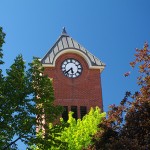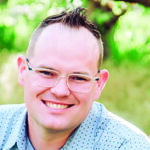Home »

Shuswap leadership under scrutiny for salaries
After complying with the First Nations Financial Transparency Act to post audited financial statements online, the Shuswap First Nation’s leadership is coming under some community and media scrutiny.
The Shuswap Band’s audited financial statement for 2014 shows that Chief Paul Sam and other family members working for the band have some of the highest salaries in the province among First Nations community leaders.
Filed via the First Nations Financial Transparency Act, which came into being earlier this year, the audited statements show that Chief Sam, his ex-wife Alice Sam who is a band councillor, his son Dean Martin and a grandson were paid more than $4.1 million in the last four years.

Chief Sam, 80, gets a tax-free salary that has averaged $264,000 over that period running the 267-member First Nation, with just 87 people living on reserve.
According to the statement, Sam’s son, Dean Martin, is earning more than double what his father makes ($536,000) as CEO of the band’s corporate interests.
The financial information, while public, came to media light earlier this week when links such as Schedule of remuneration for elected officials year ended March 31, 2014, were forwarded to national, provincial and local media by concerned band members.
“We had no idea. We are absolutely disgusted,” Shuswap Band Councillor Barbara Cote told The National Post.
The financial statements show Cote earned $57,700 in 2013/14 compared to fellow Coun. Sam who pulled in $202,000, and Chief Sam who earned $202,413, said she was unaware of the scale of her council peer’s salaries.
She said she is vowing to reform band finances if she is re-elected in next month’s election.
Sam has been chief for more than 30 years, with a brief lapse when he was defeated in a 2002 election. He was re-instated as chief a year later.
Dean Martin and band media relations spokesperson Gord Martin told The National Post their parents’ hard work and longevity justify salaries higher than the prime minister.
“With all due respect to (Stephen) Harper and to everybody else, I don’t think they’ve been in power for 34 straight years,” said Dean Martin, chief executive officer of Kinbasket Development Corp. “To be … the leader of a nation, and we’re not just a band, we are a nation, and to lead it for 34 years, is something totally unheard of, I don’t care in what political field you’re in.”
Martin also told The Post the high salaries are justified because the family has brought economic development to the community. “I’m not embarrassed about what we’re doing,” he told The Post.
This isn’t the first time Chief Sam’s administration has come under question. In the late 1990s, then Kootenay-Columbia MP Jim Abbott and Wild Rose (Alta.) MP Myron Thompson held an ‘air-your-grievances’ meeting at Cranbrook’s Heritage Inn. While attended by residents from all the bands in the region, much of the focus of that meeting was on the Shuswap Band.
And on Feb. 25, 2002, 11 band members locked the chief and council out of the band hall and staged a sit-in, citing the lack of financial accountability of the council.
The final straw came for the protesters after it was learned that 90-year-old elder, Marceline Stevens, had gone without heat for three days in minus 20 C weather, with no assistance from the band office.
Local reporter Stephanie Stevens was invited to join the sit in and later reported on the story. She asked the Department of Indian Affairs if anything would be done to solve the problem.
“According to Indian Affairs communications spokesperson Avril Archibald, there is no plan to send a representative in the near future. “We are not sending anyone at this time. Our preference is to allow the parties involved to resolve this matter themselves. If the chief and council ask us for assistance, we would look at sending someone. What we are doing is we are encouraging the parties involved to find a mediator, whether that is an Elder, or a mediator nearby, someone of a third party that’s not the department that can help them resolve this. Our view is that this is an internal matter and it’s just best they work it out themselves. And part of that is just respecting the fact that you know we have a government-to-government relationship with them and it’s not for us to step in and solve matters for them,” the spokesperson told Stevens for a Aboriginal Multi-Media Society article.
Ian Cobb/e-KNOW







